Researchers Investigate Whether Pain Can Be Recognized on a Horse’s Face
April 3, 2014 Comments Off on Researchers Investigate Whether Pain Can Be Recognized on a Horse’s Face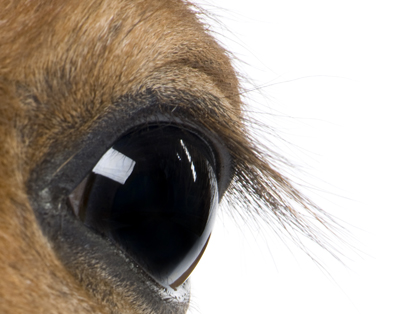
Humans, other primates, and even dogs share a common feature: We express ourselves, including our physical pain, through our faces. Horses, maybe not so much. At least not in a way researchers have quantified, until recently.
Continue reading …Unique Online Study Will Examine Incidence of Bullying in Horse Sports
April 2, 2014 Comments Off on Unique Online Study Will Examine Incidence of Bullying in Horse Sports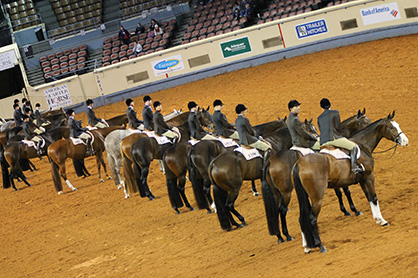
The first portion of the survey will investigate “the attitudes and emotions of people in horse sports.” The second portion seeks to determine if equestrians have been exposed to bullying in horse sports, and, if so, how they react and cope.
Continue reading …More Than 133,000 People From 112 Countries Tuned in to Watch Birth of Foal Online
April 1, 2014 Comments Off on More Than 133,000 People From 112 Countries Tuned in to Watch Birth of Foal Online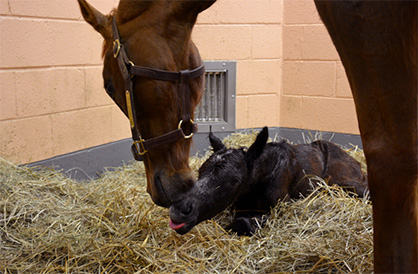
This foal, in particular, is very special because it represents the first successful pregnancy by Penn Vet using the advanced reproductive technique intracytoplasmic sperm injection, known as ICSI, which involves injecting a single sperm into a mature egg.
Continue reading …For a Healthy Horse, KISS, Keep It Simple S…..
March 28, 2014 Comments Off on For a Healthy Horse, KISS, Keep It Simple S…..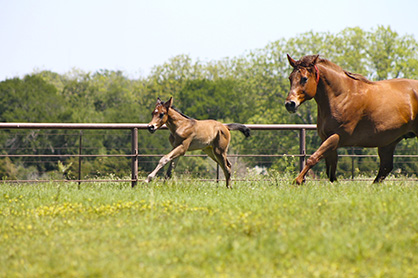
We are so busy micromanaging our horses’ lives and their diets that we have forgotten the basics: Fresh air, water, companionship, freedom to move, and fresh grasses and plants. The ideal is a pasture with plenty of variety where all you need to add is water and salt.
Continue reading …Changing Climate and Diet 16 Million Years Ago Led to Shape of Equine Teeth Today
March 26, 2014 Comments Off on Changing Climate and Diet 16 Million Years Ago Led to Shape of Equine Teeth Today
Teeth in the skull of a horse (genus Neohipparion) found near Valentine, Neb. The skull dates to 13 million to 16 million years ago.
Continue reading …Strength Coach That Has Worked With NHL, NFL, and MLB Now Has Equestrian Workout DVD
March 26, 2014 Comments Off on Strength Coach That Has Worked With NHL, NFL, and MLB Now Has Equestrian Workout DVD
Kori Lyn Angers has designed “Riders Prep,” the perfect conditioning routine that activates and strengthens “Equestrian-specific” body issues — with on point focused exercises that get you ready to ride!
Continue reading …NICU Step Down Program For Sick Foals
March 25, 2014 Comments Off on NICU Step Down Program For Sick Foals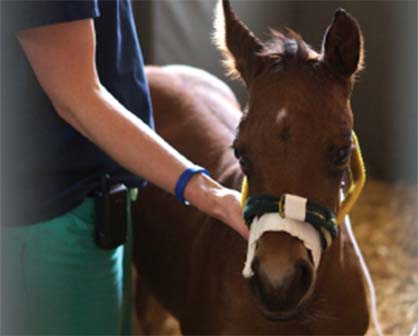
In these economically challenging times, owners of less critically ill foals may be reluctant to seek care. The Jump Start package is designed so that owners know the total cost for this level of care before sending their foal to the hospital.
Continue reading …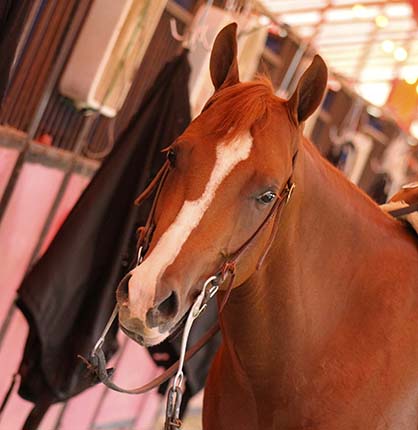
There are a number of serious diseases that can affect horses and humans. A big concern today is that some of these pathogens are becoming resistant to the antibiotics we use to treat them.
Continue reading …Dr. Laura Johnstone to Discuss “What’s Your Diagnosis? Neurologic Disease in the Horse”
March 21, 2014 Comments Off on Dr. Laura Johnstone to Discuss “What’s Your Diagnosis? Neurologic Disease in the Horse”
Her presentation will focus on equine neurologic diseases, which can range from a drooping eyelid, to a change in personality, to an inability to stand. Dr. Johnstone will present several cases, asking the question: What’s your diagnosis?
Continue reading …Ready for Show Season? Feeding for Top Performance
March 20, 2014 Comments Off on Ready for Show Season? Feeding for Top Performance
We all admire the equine athlete, the captivating blend of speed, control, grace and endurance. But the added stress of performance requires an optimal diet, with plenty of energy from carbohydrates and fats, high quality protein, adequate minerals, and vitamins.
Continue reading …







